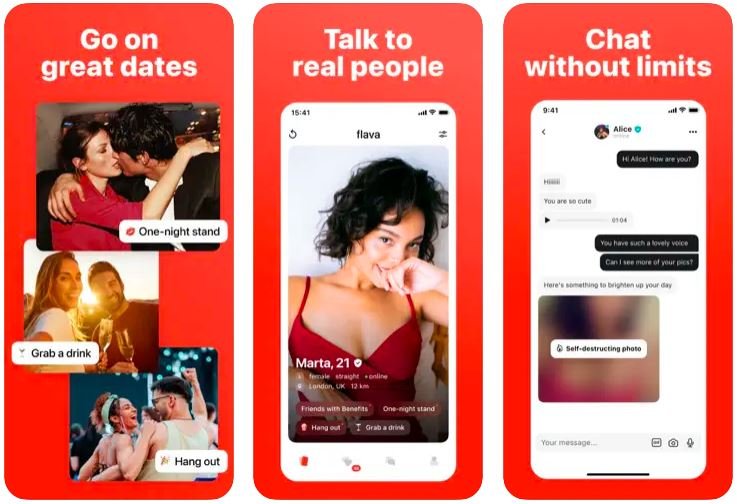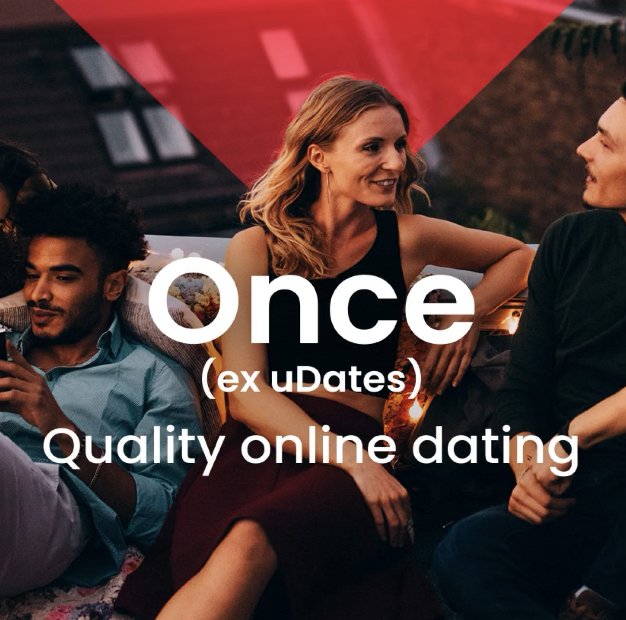Managing dating app rejection
Table of contents
• Being mentally prepared for dating
• Setting rules and boundaries
• Good practices when dating
• Managing rejection
• Coping strategies
• Building support systems
• Prioritising mental well-being
Asking someone out behind a veil of internet anonymity can be, for some, truly exhilarating.
The results are unpredictable and the far reaching accessibility of mainstream dating apps like Bumble or Tinder offers amazing connections that we could never have made otherwise. Why then, does the dating app experience leave so many of us feeling exhausted, alone, dejected and mentally bashed?
Last year a poll taken by cosmopolitan showed that 61% of us have faced some sort of discrimination or psychological abuse from online dating, often reaffirming our social fears and creating another barrier to entry for vulnerable people.
This has had, and will continue to have a massive impact on mental health and wellbeing, potentially for the long term. So how can we arm ourselves for healthy dating? And is there a prerequisite mindset we should take on before diving into the dating space?
🎓 READY FOR A PHOTOSHOOT?
Need all new photos? Ready for a full Photoshoot with me? 📸 Plan your next session right here
Being mentally prepared for dating
Our approach to dating is often frivolous. Sometimes it's based on advice from someone who believes it's the right move for you. Or perhaps we use it at times for validation or a self esteem boost. What we do know is that dating doesn't have the best reputation for satisfying those more immediate desires for acceptance or comfort.
If sex is the goal and your interests go no further than the shallow depths then perhaps you'll have a bulletproof vest regarding mental health, as is sometimes presumed, but having the guard up doesn’t always protect us from the aspects of human nature that make us mentally vulnerable.
If no one resonates long enough with you to be important then it’s arguable that distance and casual relationships can be exactly what you want. These are the kinds of considerations that will put you in a good place before dating. Either way, establishing what you want early on will also inadvertently help you outline what you don't want, providing clarity on the red flags you'll look to avoid.
"Dating is like a roller coaster, sometimes it's exhilarating and other times it makes you sick to your stomach" - Miranda KenneallySetting rules and boundaries
Things would be much easier if the all encompassing rules worked for everyone - don't rush in, don't wear your heart on your sleeve etc. The problem with humans is we need rules tailored, personalised and fine tuned for each of our own individual endeavours. Examples could include:
A particularly vulnerable person will want to think about things in a more careful way, they may want to limit their daily usage of dating apps, preserving their well being and reflecting on each conversation for more time.
A person who is uncomfortable with meetups may want to bring a friend along, preserving the pleasure of meeting someone new, whilst not giving up the safety of a friend nearby. This is a good way to start.
Or someone who is newly out of a long term relationship might want to take a break from dating all together, at least until they have created some distance from their previous relationship.
Easing into things slowly is a little harder when you are missing companionship. Pumping the breaks when you need to is even harder, but the rewards in self-care that this offers make this act of self discipline something we should all consider.
Good practices when dating
When you are dating there are some ubiquitous good practices that seem to act as great advice for everyone:
Know the app, do your research since 99% of dating apps are largely underdeveloped with little to no screening process.
Check in with your constant, this could be your closest friend or even your own journal
Be uncompromisingly honest
Go on a video date before meeting
These are only some of the staples that most people would be wise to follow. All the experiences to be had on dating apps are not always good, so you want to do all you can to filter out the things you don’t want.
Managing rejection
This is perhaps the hardest part of dating. And when you're on a dating app, a lack of recognition from multiple people at once cuts real deep. Personalising rejection is an instinctive reaction of ours, but it's also a flawed cognitive model. The few seconds someone spent looking you over before swiping left is unaccountable for what you look like.
A fumbling scatter of texts resembling a conversation which results in a getting ghosted is not a statement of your ability to talk and engage and a date that goes south is not akin to spending time with you (in 3D) when your guard is down and your warmth is showing.
Be mindful of why you got rejected. If it's happening immediately after you use that line you love, it's time to switch it up. Step back, take stock of the situation, regroup and try again. Your chances are plentiful.
So learning to cope with a stop sign from someone is step 1. Then understanding why it's okay to brush off those deflated feelings is the goal. Starting out with grounded expectations of this whole process and persevering with multiple tries and multiple failures tends to be a strong foundation for success.
Coping strategies
Inevitably some are always going to struggle with the negative aspects of dating, regardless of how prepared they are. This is when we look at coping strategies that people find most effective.
Meditation and relaxation sessions - practised with or without the pressure of dating these help to calm a busy mind and clear resentful thoughts.
Take on a new hobby - if you are going to start the rollercoaster of dating why not start it alongside an additional distraction.
Take breaks from dating - pull all of your attention back inwards and refocus for a few weeks.
Reducing isolation time - Easier said than done if you have less people in your life but this can mean simply reducing your screen time and surrounding yourself in a more nurturing outdoor environment.
Building support systems
The default here is often a friend or loved one who knows your triggers, knows your fears and more importantly knows how to appease those things. We don't want to exhaust the generosity offered by those closest to us but we can let them know we are taking steps towards dating and would like to check in with them from time to time to let them know how it's going.
And when you are not in a position to have people around then your wall of support is going to have to come from yourself. Stay mindful of the things in your life that comfort you. Some people use pets, others use music, even I became a foodie just so I could spend less time indoors and more time engaged in outdoor wonders and cuisines.
Prioritising mental well-being
No matter how enriching a new relationship can be, your personal resolve, your self-care, peace of mind and wellbeing are still your only real priorities.
Your chances of success when dating are ongoing, they don’t expire, and that's the key here. Relative to how long you live and what you want in life imagine how freeing life becomes if you stay mindful of the idea that your chance of meeting someone you like won't ever go away.
Feeling really overwhelmed? reach out to a professional for help. There are innumerable benefits to having a support system that includes a skilled practitioner. They could spend time talking things through with you and offer actionable strategies to help you cope.





































